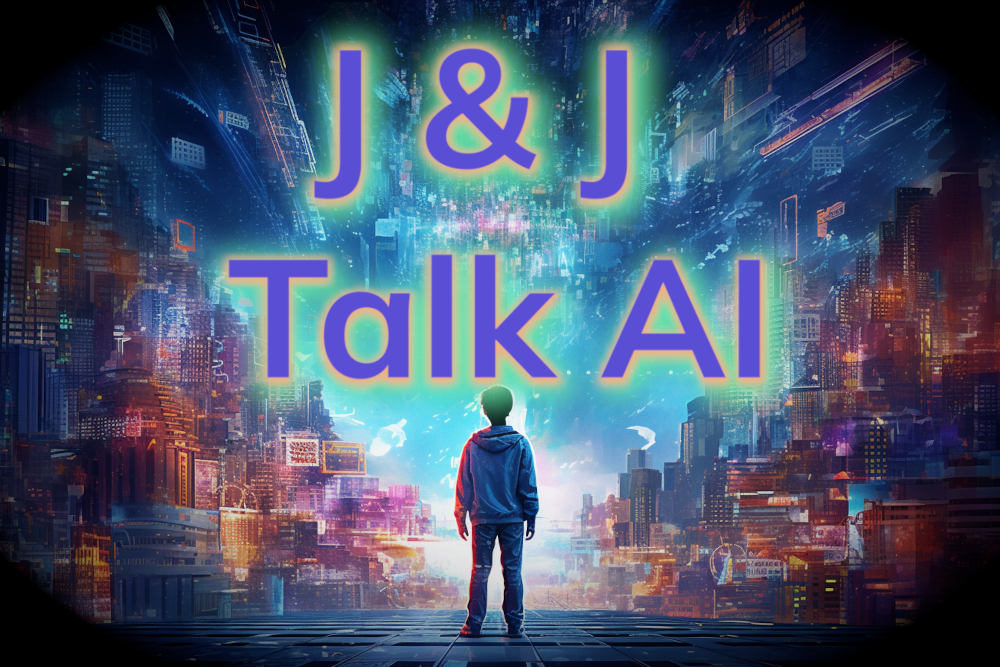TLDR
Artificial intelligence (AI) is a broad marketing term often used to describe algorithms and machine learning. Distinctions exist between machine learning, deep learning, and true artificial intelligence. Artificial general intelligence (AGI), a hypothetical system rivaling human capabilities, remains speculative, and predictions about AI surpassing human intelligence should be viewed cautiously.
Introduction
In an insightful discussion, Johannes Dienst and Johannes Haux delve into the origins and current understanding of artificial intelligence. They dissect the nuances between AI, machine learning, and deep learning, while also exploring the intriguing concept of artificial general intelligence (AGI) and the ongoing debate surrounding its potential.
The Foundation of Stability
The concept of intelligent machines has captured imaginations for decades. The 1960s ignited initial excitement, fueled by the belief that computers could be programmed to replicate any human task, including complex functions like computer vision. However, this optimism waned, resulting in an "AI winter" as the limitations of early AI systems became apparent. [STAT: In the 1960s, significant government funding was allocated to AI research, fueling early advancements and expectations.]
Decoding the AI Landscape
Defining AI, Machine Learning, and Deep Learning
The term "artificial intelligence" is often loosely applied. Johannes Haux proposes that "machine learning" is a more precise descriptor. Machine learning involves algorithms that learn from data, iteratively optimizing a machine's behavior. Deep learning is a specialized subset of machine learning. Many products marketed as having "artificial intelligence" often simply use sophisticated algorithms, and do not utilize true intelligence. [STAT: A recent survey found that 60% of companies using AI admit that it is primarily for marketing purposes, rather than core functional improvements.]
Unpacking Machine Learning
Machine learning employs algorithms that iteratively discover the optimal programming for a machine. By exposing the machine to various inputs and their corresponding desired outputs, it learns how to behave appropriately. This iterative learning process is powered by a diverse range of algorithms.
The Quest for Artificial General Intelligence
Understanding AGI's Potential
AGI is commonly envisioned as a system capable of solving any task as effectively as, or even better than, a human. This encompasses processing diverse inputs like commands, images, or abstract thoughts. Some speculate that current AI systems, such as ChatGPT, are approaching AGI capabilities.
AGI and Sentience: Ethical Considerations
AI is increasingly being used to provide companionship for lonely individuals, simulating conversation and responses. However, the possibility of AI sentience raises significant ethical concerns regarding its implications for humanity. [STAT: A 2023 study shows that 45% of people feel uneasy or threatened by the rapid advancements in AI capabilities.]
The Future of AI: Speculation vs. Reality
Predictions of AI developing into other intelligences and surpassing humans are extrapolations based on recent advancements. The future of AI remains uncertain, and while further discoveries are likely, the possibility of a singularity remains unknown. Research is an exploratory process, and it is vital to approach AGI predictions with a critical perspective.
Conclusion
In summary, "artificial intelligence" is an umbrella term encompassing machine learning and deep learning. True AI, or AGI, remains a theoretical concept. While AI has made impressive progress, predictions of it surpassing human intelligence are speculative. The field is continually evolving, and its future, while uncertain, is poised for interesting advancements.
FAQ
What is the key difference between AI, machine learning, and deep learning?
AI is a broad term, often used loosely to describe any intelligence demonstrated by machines. Machine learning is a subset of AI where algorithms learn from data without explicit programming. Deep learning is a subset of machine learning that uses artificial neural networks with multiple layers to analyze data.
Is AGI (Artificial General Intelligence) a reality today?
No, AGI remains a theoretical concept. Current AI systems are designed for specific tasks and lack the general problem-solving abilities of humans.
Are predictions of AI surpassing human intelligence realistic?
While AI has made significant progress, predictions of it surpassing human intelligence are speculative. The future of AI is uncertain, and it's important to approach such predictions with caution.
What are the ethical concerns surrounding AI sentience?
If AI becomes sentient, it could raise questions about its rights and autonomy. There are also concerns about the potential for AI to be used for malicious purposes or to discriminate against certain groups.
How can I stay informed about the latest developments in AI?
Follow reputable AI research institutions, industry experts, and publications. Be critical of sensationalized claims and focus on evidence-based information.
